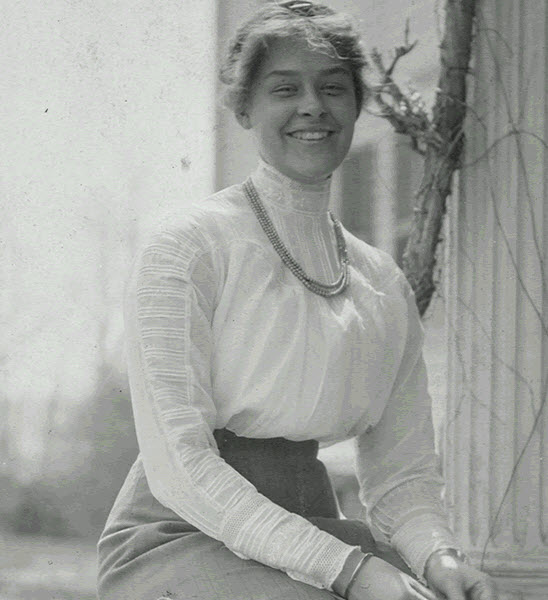OUR STORY
The Lydia B Stokes Foundation’s mission, first developed in the 1990s, evolved out of a strong legacy from both sides of our family.
Lydia’s grandfather, Charles Pratt, devoted his life to giving back to his family, his community, and to social and economic justice for working people. Lydia’s husband was their town’s family doctor, as were his father and grandfather before him, all descended from a long line of Quakers with a deep commitment to education, peace and social justice.
Our family also has been deeply grounded in our strength of connection to the beauty and life force of this wondrous planet we call Home. This deep-rooted connection to our natural world is the core from which we set our direction, and to which we dedicate our efforts going forward.
These core principles have guided the Foundation’s granting decisions, investments in local and PRI focused business, and our commitment to socially responsible investing (SRI).
In 2006, at our annual retreat, the Trustees recognized that we needed to move Beyond SRI (BSRI), and address the realities of resource depletion, peak oil, and the end of exponential material growth as a viable model on our finite planet. We determined that community would be the organizing construct around which we would focus our mission and build a strategic plan.
We developed a three stage strategic plan, designed to unfold over the time period between 2007-2023, which we determined would be a time of transition from the Industrial Age to an Ecospheric Age.
The Foundation recognizes that:
This is a time of transition on the planet, as the primary economy of Nature, her vitality and natural resources are polluted and depleted, as human populations soar, and their insatiable material demands increase, as monetization of goods, services and relationships destroys communities, and threatens the health and well being of all life on our planet.
The centralized, large scale, mechanistic models of the Industrial era, built around a worldview that separates humans from the rest of the natural world, are no longer viable, so we must imagine and create new social and economic systems that nurture healthy ecosystems, promote public health, and restore respect for intergenerational common wealth. This includes recognizing the real wealth of healthy soils, clean water, and natural diversity, as well as relationships that foster trust and collaboration, and result in wide-spread social and economic justice.
We are committed to taking a leadership role in the shift from the Age of Oil to the Age of Soil during this great transition from an extractive to a regenerative economy. We commit our investments, originally generated by extraction of the Earth’s wealth, to provide soil in which to grow a New Sufficiency Economy. As members of the sixth generation since Charles Pratt played his integral role in the rise of the Age of Oil, we now resolve to use our investments and grants as nurture capital for an Age of Soil we hope will flourish for the next seven generations.
This commitment to mission based investments and to eliminating the traditional dichotomy between foundation grants and investments has informed our evolution. Our granting has become very focused on supporting the small and emerging Place based organizations dedicated to these principles, especially in rebuilding regional regenerative organic food systems, as well as supporting national organizations that are forging connections, awareness, language, and actions committed to transforming to an Ecospheric worldview.
Our Investments – see Investment Policy
We have been fortunate to work with an asset management team who have long been pioneers in SRI, and are increasingly skilled in finding mission focused alternative investments that meet rigorous due diligence and screening while launching and expanding transformative businesses. This relationship has facilitated our efforts to transition away from traditional portfolio constructs and definitions of risk, by “doing well while doing good”.

OUR FOUNDER - LYDIA B. STOKES
Lydia B. Stokes was a strong, idealistic woman who stated her opinions openly and deeply cared about helping others. She worked diligently in philanthropic activities throughout her long life.
Born in Brooklyn, New York, she was the granddaughter of Charles Pratt, founder of the Pratt Institute, and a tireless worker himself for the betterment of working class men and women, and his community.
After graduating from Vassar College, Lydia married S. Emlen Stokes, a fifth generation Quaker physician in Moorestown, New Jersey. In this small Quaker town, she became active in many ways, including helping to establish the Visiting Nurse Association and working for home health care. Later in life, she became active in the World Council of Churches and Church Women United.
After years as an individual philanthropist, Lydia founded the Lydia B. Stokes Foundation in 1959, which she ran until her death in 1988. Her primary interests both individually and through the Foundation, were women’s health, especially Planned Parenthood, education, the American Friends Service Committee, the World Council of Churches and the arts. Her deep love of Nature, fostered by her summers in the Adirondacks, and expressed in her connection to the maidenhair fern, were a source of peace, relaxation, and spiritual renewal, and a perfect balance to her busy town life.
